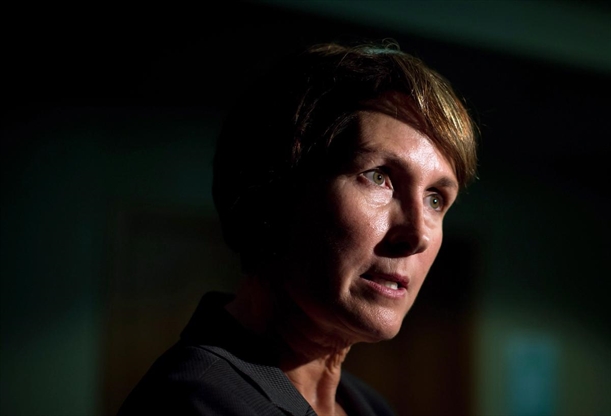VICTORIA—The Métis leader whose warning initiated what’s being touted as the first complete review of racism in a Canadian health-care system is now calling on the rest of the country to follow British Columbia’s lead.
Daniel Fontaine, chief executive officer of the Métis Nation British Columbia, says he’s not surprised that a report released Monday has found pervasive, systemic racism against Indigenous people in his province.
The groundbreaking report has the potential to initiate a Canada-wide reckoning on something Indigenous people have known their whole lives: that health-care racism and discrimination is hurting them and their health.

“It may be the first, but I daresay it won’t be the last of its kind in Canada,” Fontaine said of B.C.’s investigation. “It has national significance. Every province and territory in the country should be looking at it to ask them some tough questions.”
Racism is hurting the health of Indigenous people and leaving them more harshly affected by health crises, including the opioid crisis and the , the independent, groundbreaking probe released Monday in B.C. found.
The report details harrowing accounts shared with the investigative team from dozens of Indigenous people who describe forms of racism and discrimination that hindered their ability to access health care, and exposed them to damaging stereotypes and assumptions.
There was a case of an 11-year-old girl whose doctors did not seem to trust her word that she had not been drinking. A woman living on the Downtown Eastside was detained under the mental health act when she was mistakenly assessed as suicidal. One 57-year-old Indigenous man, later diagnosed to have two cracks in his pelvis after a fall, reported being ridiculed by two nurses and told he was fine.
When the man argued, security was called, and he spent the night in jail, instead of getting treatment.
What these examples illustrate, said Mary Ellen Turpel-Lafond, who led the investigation at the province’s request, is a health-care system that is unsafe for Indigenous people and that regularly paints them with a number of stereotypes instead of treating them with dignity and proper care.
“What it looks like are abusive interactions at the point of care; verbal and physical abuse; denial of service,” said Turpel-Lafond, a well-known Indigenous lawyer and former B.C. advocate for children and youth. “We have a major problem with Indigenous-specific racism and prejudice in B.C. health care.”
Turpel-Lafond said her team’s recommendations could provide a blueprint for the rest of the country for rooting out racism and discrimination.
The B.C. probe was initiated in June, after Fontaine alerted deputy health minister Stephen Brown about allegations that health-care workers in an emergency room had played a game they called “Price is Right.” That involved them guessing the blood-alcohol level of mainly Indigenous patients before they received treatment, and about a swath of complaints by health-care workers of alleged racist incidents against Indigenous people.
The meeting prompted B.C. Health Minister Adrian Dix to call the investigation..
Turpel-Lafond said the investigation did not find evidence of an organized “Price is Right” game, but that it unearthed an even more insidious picture of a system rife with racism and prejudice that is making the B.C. health-care system an unsafe place for Indigenous people.
The report, called , is based on input from 9,000 people, including Indigenous people and health-care workers.
“It is shocking but not surprising to read those incidents throughout the … report and to ask: Why did it take Métis nation to trigger this report a number of months ago?” Fontaine said Monday.
He said clues to answer that question lie within a theme of Turpel-Lafond’s recommendations, which outline an urgent need to have Indigenous people at the table in health-care authorities and political bodies making decisions about health.
“Where we get vindication around bringing this up is in this report. It raises the spectre of systemic racism throughout the entire health-care system,” he said.
Now that the Turpel-Lafond report is out there, he said there’s no way people in positions of authority can deny how widespread and deep-rooted racism is in health care — across Canada.
Turpel-Lafond said a second report, a data analysis of Indigenous-specific health outcomes, will be released in the next month.
The report’s 24 recommendations deal with implementing systems and cultural expectations to root out implicit and explicit racism in B.C.’s health-care system, including the creation of a B.C. Indigenous officer of health and an associate deputy minister of Indigenous health at the provincial government.
Dix on Monday offered an “unequivocal” apology for the findings of racism in the report, and vowed to implement recommendations immediately, including by introducing new Indigenous health liaisons in each of the province’s health authorities.
Indigenous leaders were quick to express their support for the recommendations, saying they were especially urgent in view of the pandemic.
“There is no time to wait; the current COVID-19 pandemic necessitates constant engagement by First Nations with the health-care system, and we categorically demand a safe health-care system for our people at this time and going forward,” reads a portion of a statement by the First Nations Leadership Council.
The in hospital earlier this year also served to highlight the barriers Indigenous people face to getting care.
Joyce Echaquan, an Atikamekw mother of seven, died soon after she filmed herself from her hospital bed in late September while she was in clear distress and pleading for help. Toward the end of the video, which was streamed live, two female hospital staff enter her room and are heard making degrading comments, including calling her stupid and saying she’d be better off dead.
The video has sparked widespread indignation, several inquiries and a lawsuit from Echaquan’s family against the hospital in Joliette where she died.
With files from Bayleigh Marelj and The Canadian Press
Alex McKeen is a Vancouver-based reporter for the Star. Follow her on Twitter:
